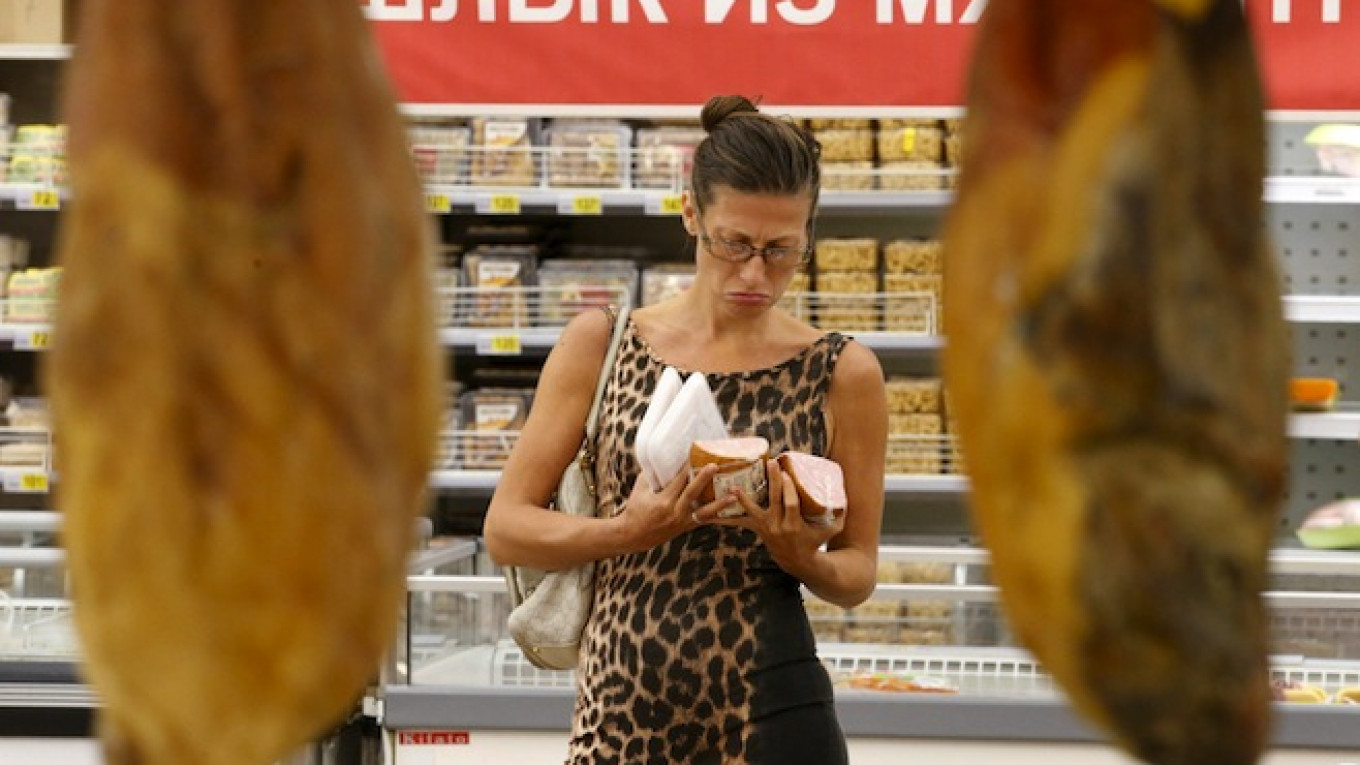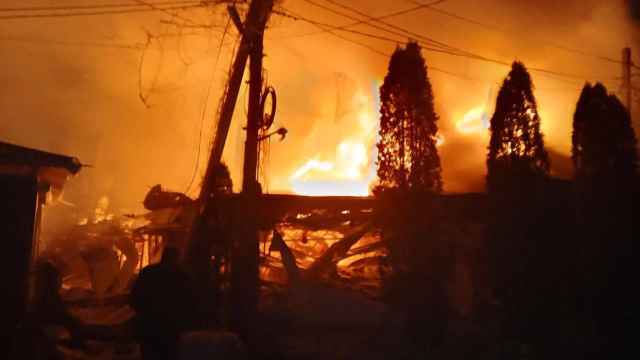Russian customs officials want to make smuggling banned Western foods a criminal offense as serious as dealing in radioactive materials or explosives.
In retaliation to Western sanctions over its role in the Ukraine crisis, Russia last year banned certain food imports from the European Union, the U.S. and a few other countries. President Vladimir Putin this month ordered the destruction of confiscated contraband food, with hundreds of tons of fruit and cheese steamrolled and burnt in a public display of the ban enforcement.
The Federal Customs Service on Thursday published a draft bill suggesting that banned foreign foods be listed as "strategically important," a label so far reserved for radioactive materials, poison, armaments and explosives. The re-classification would allow authorities to bring criminal charges, with prison terms of up to seven years, against individuals and companies involved in smuggling.
The customs officials claim that the current penalty for banned food smuggling, a fine of up to 300,000 ($4,500), is not harsh enough as a deterrent.
The Kremlin is determined to enforce the ban amid continuing tensions with Europe and the U.S. over the Ukrainian crisis, and has ignored a public outcry over the destruction of food at a time when the economy is in recession and the poor are struggling to feed themselves.
Eager to demonstrate their zeal in enforcing the ban, local authorities from all over Russia file daily reports on new and increasingly exotic means they employ to destroy the banned food.
Prosecutors in the Volga River city of Samara said Thursday they had discovered several kilos of banned French and Dutch cheese in a local grocery store and destroyed it by slicing it into pieces and pouring household bleach on it.
The draft bill on criminal liability for food smuggling will be up for discussion in the government until Sept. 3, when a decision is expected.
A Message from The Moscow Times:
Dear readers,
We are facing unprecedented challenges. Russia's Prosecutor General's Office has designated The Moscow Times as an "undesirable" organization, criminalizing our work and putting our staff at risk of prosecution. This follows our earlier unjust labeling as a "foreign agent."
These actions are direct attempts to silence independent journalism in Russia. The authorities claim our work "discredits the decisions of the Russian leadership." We see things differently: we strive to provide accurate, unbiased reporting on Russia.
We, the journalists of The Moscow Times, refuse to be silenced. But to continue our work, we need your help.
Your support, no matter how small, makes a world of difference. If you can, please support us monthly starting from just $2. It's quick to set up, and every contribution makes a significant impact.
By supporting The Moscow Times, you're defending open, independent journalism in the face of repression. Thank you for standing with us.
Remind me later.






